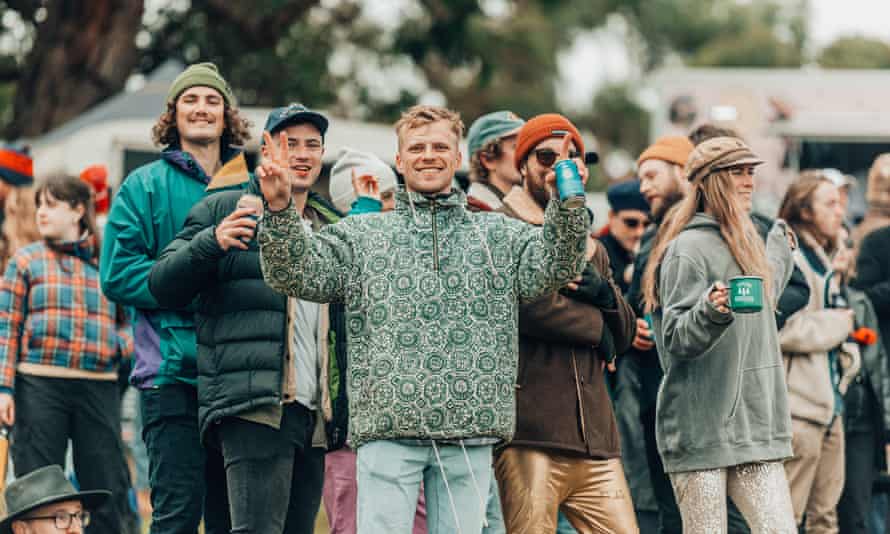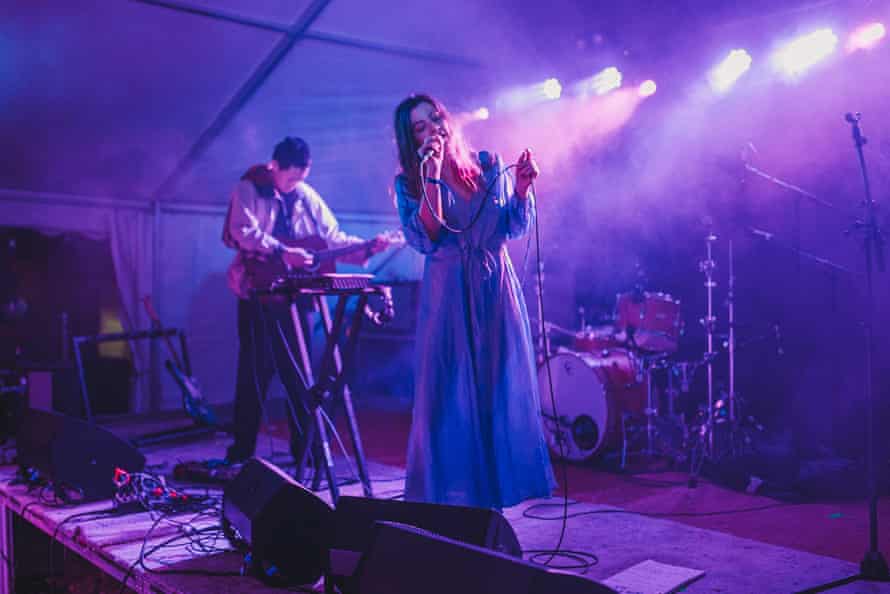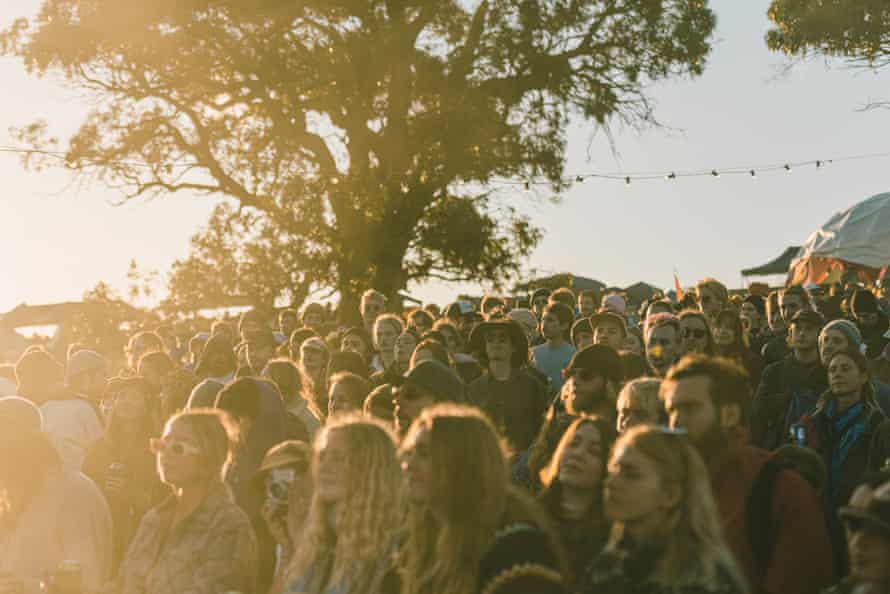As Perth entered its second day of lockdown over the weekend and Victorians kept a nervous eye on the news, about 100km south-west of Melbourne several hundred music fans woke to the mellifluous funk of the band Birdsnake. The punters were drawn slowly from clusters of tents to the small stage situated in the natural amphitheatre of the Bambra Bowl, and spacey saxophone-soundtracked the slow development of a queue for a van selling the only coffee available for miles. Nearby, a small group of warmly dressed barflies struggled gently with news that espresso martinis wouldn’t be available for at least an hour.
This was day two of Meadow, a music festival that feels very much like the opposite of lockdown. It’s one of the few music festivals to have taken place in Australia over the past 12 months. While the planned dates for industry titan Bluesfest coincided with a local Covid-19 case, leading to a last-minute cancellation, and Falls, Meredith and Golden Plains wait for kinder times, smaller festivals such as Yours and Owls, Boogie and Meadow have pulled off what seems like a series of minor miracles.
Signs at Meadow instructed: “No moshing. No crowd surfing. No stage diving. Yes dancing.” Between sets, messages flashed over the stage asking people to be mindful of social distancing, to carry masks at all times and to use them if distancing wasn’t possible.

Perhaps recognising their luck that the festival was happening at all, no one gave a sense of feeling constrained by these rules. Throughout the day, Meadow offered glimpses of pre-Covid festival life: beautiful people gracelessly eating vegan burgers; the crowd laughing with Melinda Kennedy’s irreverent Welcome to Country; fans stomping mud in the torrential rainand circles of friends peeling off wet raincoats to dance in the afternoon sunshine. Whether they were lying on sun chairs wrapped in a down jacket or jumping to the exuberant garage rock of Melbourne band Bones and Jones, hundreds and hundreds of people adopted the unofficial uniform of a woollen hat, sunglasses and a wide smile.
The state government’s event guidelines can shift rapidly in response to public health recommendations. Given its capacity was capped at 1,000, Meadow is considered tier-three in Victoria, a designation that requires organisers to fulfil Covid-safe conditions but doesn’t require an event plan that would restrict movement and activity within the festival.
“We capped [attendee numbers] to stay under the tier three,” festival organiser Cameron Wade told Guardian Australia. “I don’t know about the distant future, but as long as Covid is in place we want to stay in the category where we’re able to run our event as best as we can in line with the guidelines. The administrative burden of becoming a tier-two event is just not worth us selling any extra tickets – we just don’t have a big enough team.”

The previous weekend, Yours and Owls – a larger event than Meadow and one operating under stricter regulations in New South Wales – ran into problems. Police interrupted performances to disperse audience members who were enthusiastically disregarding social distancing measures. Those interruptions led to playing times being pushed back and some sets curtailed.
“A number of sets were briefly interrupted by event organisers to ensure compliance with their Covid-safe plan,” Wollongong police’s district commander, Acting Supt Gordon Dunlop, told WaveFM. “But police were not required to shut down any part of the event, which is a positive outcome given the number of festival-goers in attendance.”
Rules regarding tier-three events in Victoria eased earlier in April, allowing Meadow to abandon rules that would have seen festival-goers issued with coloured wristbands that would have been used to restrict them to certain areas at certain times.

“We saw zones and tiered ticketing at some other events, and bigger promoters selling ‘front row’ tickets, or pricing tickets depending on where you’re zoned,” Wade said. “That’s good if you can’t do anything else, but if there’s an option of coming to a smaller event and not doing that at all, then I think there are benefits in doing that. It makes for a much better experience.”
Wade emphasised that the success of the festival was also a success for the surrounding community. “All of our food providers here are Surf Coast shire businesses, all the alcohol is from producers around this area, and most of our suppliers are local. Our security contractors are regional and our production guys are from Geelong,” he said. “Even though it’s a small festival, whatever money it’s turning over is largely staying in this area. No money is going back to Melbourne.”
Somewhere behind the darkening clouds over the festival stage, the sun was setting. Earlier in the day, new-wave rock band Romero, playing just their 13th gig, converted the crowd into fans. It felt like a moment that every great music festival should have. Friends huddled closer together, shared wood-fired pizza, cracked open cans of beer from a local brewery and awaited psychedelic rock icons King Gizzard and the Lizard Wizard. If this is the new normal for Australian music festivals, it could be a lot worse.
This content first appear on the guardian
